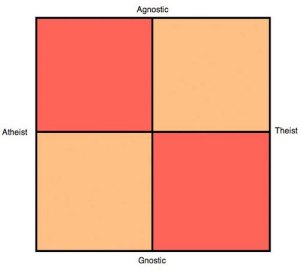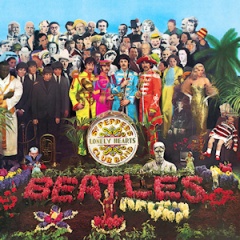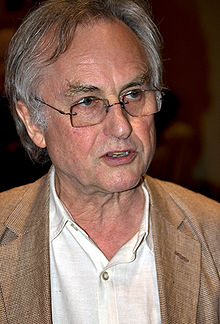Christina over at WWJTD posted a blog entry talking about Dawkins’ debate with Dr. Rowan Williams, the Archbishop of Canterbury. (1) During this debate Dawkins reiterated that he was not 100% certain that god(s) does not exist. Of course this isn’t anything new to those of us who have read The God Delusion (2) and have been around the movement for a while. It also isn’t surprising, just a little depressing, that some religious organizations and individuals have declared “Victory! Dawkins is not an atheist! He’s one step away from joining the dark side!” (okay, maybe not quite that last part about the dark side).
Dawkins is an atheist; there really is no debate over this. Any claim to the contrary is caused by a disconnect in semantics. There are differing opinions on what the terms “atheist,” “agnostic,” and even “theist” mean, but there is a general consensus with which to work. As I’m sure you have guessed, the naysayers don’t use the consensus definition. There are two similar schools of thought that I think accurately codify the consensus, although there are slight variances between them.
The first is one described by Peter Brietbart as a 2 dimensional graph. The terms atheist, agnostic, and theist aren’t points along a single dimension, but rather answer two separate questions that together form a worldview, and thus a location on this graph. Along one axis is the answer to the question “Do you think there is a god or gods?” with gnostic and agnostic representing the certainty of the answer. Along the other axis is the answer to the question “Do you believe in a god or gods?” with theist and atheist being at the two ends of the axis. These questions may seem at first glance to ask the same thing, but there is a subtle yet important difference. The first question allows for a very shaded answer; answers can be “yes,” “no,” “we can’t know for certain, so maybe,” and all sorts of other possibilities. The second question is narrower though; answers are pretty much just “yes,” or “no.” There can be various strengths of “yes” and “no”, but “I don’t know” cannot be the answer because the question asks what you believe, which, by definition, is opinion. (3)
To illustrate the point, let’s consider a thought experiment. We can debate all day long whether or not “Sgt. Pepper’s Lonely Hearts Club Band” (4) is the greatest rock album of all time. The question is one that inquires about the truthiness of the greatness of the album. We can honestly answer “I don’t know” to this question, and indeed probably should answer this way because of the sheer complexity of the question. However, the personal question of “Is Sgt. Pepper’s Lonely Hearts Club Band my favorite album?” is different. It either is or it isn’t. If you don’t have a favorite album because it’s impossible to choose (a legitimate position), then the answer to “Is Sgt. Pepper’s Lonely Hearts Club Band your favorite album?” is unquestionably no, because you don’t have a favorite album. There can really only be one of two answers, “yes” or “no.” If you think don’t know the answer, then the answer is really no because you don’t already have a favorite album.
With this approach, what Dawkins refers to as an “atheist” and what the naysayers refer to as an “agnostic” are really both “agnostic atheist.” The majority of Christians, I suspect (but do not have evidence to support), are “gnostic theists,” with a fairly large minority of “agnostic theists.” Personally I like this definition and tend to use it myself. For the record, I’m an agnostic atheist and gather that most atheists are agnostic atheists.
The second approach is the one used by Dawkins in The God Delusion and describes belief on a sliding scale from 1 to 7, much like the Kinsey scale. (5) On this scale, a person who has a complete belief in god(s) and believes that there is 0% chance they are wrong is assigned a value of 1 (notice how it correlates with being completely heterosexual on the Kinsey scale). On the opposite end, a person who has a complete disbelief in god(s) and believes that there is 0% chance they are wrong is assigned a value of 7. Dawkins places himself as a 6.9 on this scale, and I tend to place myself somewhere between that and a 6.5.
So where does an “agnostic” sit on this scale? It depends on your definition. According to a “dictionary atheist” or the naysayers mentioned above, anything less than a 7 is an agnostic. Of course this cuts both ways; such a belief also implies that anything greater than a 1 is also an agnostic, although we don’t exactly see people falling over each other to complete this dichotomy by calling 99.99% of all religious people “agnostic.” According to most of us in the non-belief camp (and many in the belief camp as well) an agnostic is, in practice, probably something below a 5-6 but above a 2-3, give or take. I mustn’t be remiss to point out that giving any hard cutoff is doomed to failure, and that agnostic is more like a fuzzy region in the middle part of the scale.
These two approaches are very similar and tend to provide similar results. I tend to prefer the former, because it provides a richer set of information than the latter, but the latter is easier to use and comprehend. I also tend to view the latter as representing a diagonal line along the former, going from gnostic theist to gnostic atheist. This view does require one change: the y-axis is transformed such that it goes from gnostic to agnostic on one side, and agnostic to gnostic on the other (yay non-linear vector space transformations!), but it’s more or less the same.
With this view, I tend to view the debates over whether or not someone is an atheist, agnostic, etc as kinda stupid. Any attempt to tell someone else that they are label X is an exercise in futility. The use of these labels merely serves to pigeon hole people who don’t necessarily fit those holes. Once someone is unwillingly shoved into one of these holes, then it becomes very difficult not to create strawman arguments based on this label. Everyone in all corners of the spectrum just needs to take labels, self-reported or otherwise, with a grain of salt until a clearer picture has been formed of the person through discussion. Otherwise it’s just a waste of time.
(1) Christina. “Richard Dawkins: not an Atheist?” WWJTD. 25th February, 2012. Available: http://freethoughtblogs.com/wwjtd/2012/02/25/richard-dawkins-not-an-atheist/
(2) Dawkins, Richard. The God Delusion. Mariner Books, 2006.
(3) Brietbart, Peter. “Atheist, Gnostic, Theist, Agnostic.” The Freethinker. 25th September, 2009. Available: http://freethinker.co.uk/2009/09/25/8419/
(4) “Sgt. Pepper’s Lonely Hearts Club Band.” Wikipedia. Available: http://en.wikipedia.org/wiki/Sgt._Pepper%27s_Lonely_Hearts_Club_Band
(5) “Spectrum of theistic probability.” Wikipedia. Available: http://en.wikipedia.org/wiki/Spectrum_of_theistic_probability



I don’t like the term “atheist”. Despite the intended definition of the word, the lay meaning seems to have become “person who believes there is no god”. This is a definition which does not suit me because I do not so much “not believe” in god but rather see no evidence to support his existence – the concept of belief in this sense is irrelevant.
When I try to explain this to someone they will usually lump me with agnostics which, on the surface, makes sense – if my atheism rests on lack of evidence then such evidence may yet exist. Therefore I am supposedly agnostic because I am not entirely convinced of god’s existence or non-existence either way. This is also incorrect since, to me, agnosticism implies some sort of ambivalence or uncertainty which I do not experience.
I think the semantic confusion is detrimental to the accurate representation of the associated arguments (much like the infinitely stupid terms “pro-choice” and “pro-life”): atheists appear as stubborn know-it-alls and agnostics as wavering fence-sitters.
I’m kind of a fence sitter on the usefulness of the term “atheist.”
On the one hand you are completely correct. There are a lot of incorrect assumptions about the definition of the term which makes it easy to create straw-man arguments. Labels in general suffer from this problem…someone says they are “X” and you automatically assume they believe everything that the label “X” means in your mind. Of course this is rarely going to be highly accurate. The only true way to find out what someone believes is to have a lengthy discussion with them.
That said, it is often not possible to have lengthy discussions with someone, or is at the least highly undesirable. In this situation a label can be useful in that it at least gives some idea of what one believes in a very short amount of time (which may be the only time available). It’s certainly a double edged sword though.
Regarding the term “atheist” in specific, there have been attempts to use different labels. I think that the most successful is the term “freethinker,” but even that label isn’t well known and a number of people don’t associate the term with “lack of a belief in god/gods.” Atheist and agnostic are the only label which is recognized and thus useful, problematic as they are. It’s one of those things where we are screwed either way.
BTW, I am so with you on the “pro-choice” and “pro-life” labels…both strike me as sensationalist labels chosen for their propaganda aspects.
Psalms 14:1 and 53:1, Romans 1:19-33 summarize what you should really term yourselves. Extra-biblical evidence such as archaeological and historical works also abound.
The most common definition of knowledge (disputed by certain philosophers) is “justified true belief” (derived from Plato). So, are you sure that the distinction that you’re trying to make between atheist/agnostic, based on the distinction between knowledge/belief, is really that meaningful?